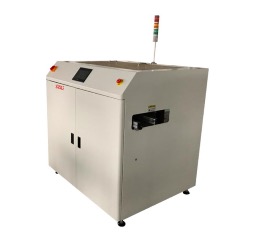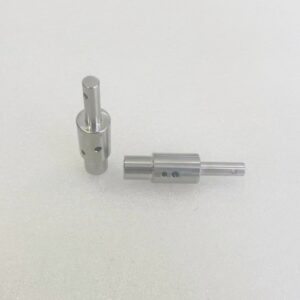Packaging machines play a pivotal role in various industries, providing efficient, reliable, and consistent packaging solutions. This guide delves into the science behind packaging machines, exploring their types, functionalities, and benefits. Whether you are in the food, pharmaceutical, or any other industry requiring packaging, understanding these machines can enhance your operational efficiency.
Table of Contents
ToggleTypes of Packaging Machines
Packaging machines come in various forms, each designed for specific tasks and industries. Here are some of the common types:
1. Filling Machines
Filling machines are essential for accurately dispensing a product into containers. These machines can handle liquids, powders, granules, and pastes. They are widely used in the food and beverage, pharmaceutical, and cosmetic industries.
Types of Filling Machines:
- Liquid Fillers: Ideal for beverages, oils, and other liquid products.
- Powder Fillers: Used for powdered products like spices, flours, and chemicals.
- Paste Fillers: Suitable for thick substances such as creams, gels, and pastes.
2. Sealing Machines
Sealing machines are crucial for securing packages, ensuring product safety and integrity. They can work with various materials, including plastic, foil, and paper.
Common Sealing Machines:
- Heat Sealers: Utilize heat to seal bags and pouches.
- Induction Sealers: Use electromagnetic induction to create airtight seals on containers.
3. Wrapping Machines
Wrapping machines are designed to wrap products in flexible packaging materials. They are commonly used for food items, consumer goods, and industrial products.
Types of Wrapping Machines:
- Shrink Wrappers: Use heat to shrink film tightly around products.
- Stretch Wrappers: Stretch and wrap film around products, often used for palletizing.
4. Labeling Machines
Labeling machines apply labels to products or packaging. They are essential for providing product information, branding, and compliance with regulations.
Types of Labeling Machines:
- Pressure-Sensitive Labelers: Apply self-adhesive labels to various surfaces.
- Sleeve Labelers: Use heat to shrink labels onto containers.
Functionalities of Packaging Machines
Packaging machines are designed with various functionalities to meet the diverse needs of industries. Here are some key functionalities:
- Automation
Modern packaging machines often feature automation, reducing the need for manual intervention and increasing production efficiency. Automated machines can handle repetitive tasks, ensuring consistency and precision. - Versatility
Many packaging machines are versatile, capable of handling different product sizes, shapes, and materials. This versatility makes them suitable for a wide range of applications. - Accuracy
Precision is critical in packaging, particularly in industries like pharmaceuticals, where accurate dosing is essential. Packaging machines are designed to provide high levels of accuracy, minimizing waste and ensuring product quality. - Speed
Speed is a significant factor in packaging, especially in high-volume production environments. Packaging machines are engineered to operate at high speeds, meeting the demands of fast-paced industries.
Benefits of Packaging Machines
Investing in packaging machines offers numerous benefits, including:
- Improved Efficiency
Packaging machines streamline the packaging process, reducing manual labor and increasing throughput. This efficiency leads to higher productivity and lower operational costs. - Enhanced Product Safety
Packaging machines ensure that products are securely sealed, protecting them from contamination and damage. This safety is particularly crucial in the food and pharmaceutical industries. - Consistency and Quality
Automated packaging machines provide consistent results, ensuring uniformity in packaging. This consistency is vital for maintaining product quality and meeting regulatory standards. - Cost Savings
While the initial investment in packaging machines can be significant, the long-term cost savings are substantial. Reduced labor costs, decreased waste, and increased efficiency contribute to overall cost reductions.
Conclusion
Packaging machines are indispensable tools in modern manufacturing and processing industries. Understanding the different types, functionalities, and benefits of these machines can help businesses make informed decisions, enhancing their packaging operations. As technology continues to advance, packaging machines will evolve, offering even more sophisticated and efficient solutions for diverse industries.
0




